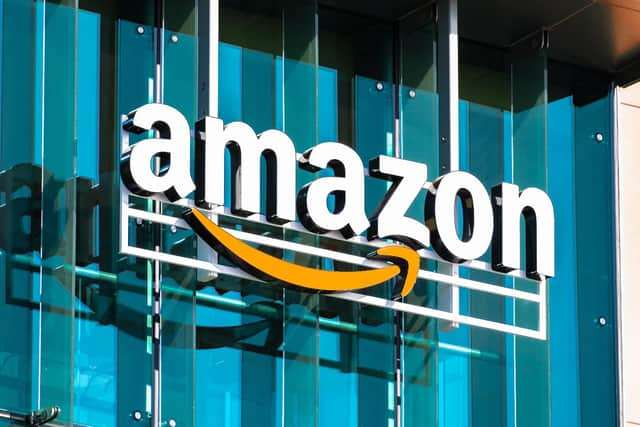Amazon scam: what are the fraudulent phone calls - and what to do if you receive a bogus call pre Black Friday
and live on Freeview channel 276
Households across Britain are being warned of fraudulent phone calls claiming to be from retail giant Amazon
It is the latest in a series of scams to sweep the nation as cybercriminals use established firms to trick people into parting with money or sensitive information through dodgy means.
Advertisement
Hide AdAdvertisement
Hide AdAutomated phone calls, phishing messages and emails have become a regular part of daily life since the start of the Covid pandemic in March 2020, coupled with a change in shopping habits.


Delivery services such as Royal Mail, Amazon and Hermes have all seen an increase in the number of scams attempted by fraudsters - putting shoppers on high alert of phishing attempts.
Here's how to spot an Amazon scam in the week leading up to Black Friday - one of the retailer’s busiest days of the year.
What is the Amazon scam?
Some UK households are receiving phone calls from an unknown number telling the recipient they have ordered an item from Amazon Prime.
Advertisement
Hide AdAdvertisement
Hide AdThe caller claims to confirm an order from the global retail conglomerate's membership service - and if there is a problem to press a number on your phone's keypad.
But customers are being warned not to press any buttons and to hang up the phone before being connected through to cybercriminals posing as Amazon employees.
The scammers look to exploit the fear they have created in an attempt to lure unsuspecting people to part with money or sensitive information which they can profit from.
Amazon has confirmed it will never contact customers and ask for your Amazon password; remote access to your computer; credit, debit or bank details; to enter an Amazon one-time passcode anywhere outside of the Amazon platform; or to make payment outside of the Amazon platform.
How to spot an Amazon scam call
Advertisement
Hide AdAdvertisement
Hide AdThe number which comes through to your phone will not be one that is recognised, so if you have a display function it should show up as an unknown number or not one of your contacts.
If you answer the call unsuspectingly, then you will be greeted by an automated message pretending to be from Amazon and confirming the purchase of a highly-priced item.
The message says: "We are calling to confirm your Amazon Prime purchase for £299.99. If this is yours, please hang up and ignore this, but if this is not your order, then please press one."
It is at this point that the recipient of the call is reminded not to be tempted to press any buttons as it will transfer the call through to bogus Amazon employees looking to exploit a situation they have created.
Advertisement
Hide AdAdvertisement
Hide AdCybercriminals want to get your private information - usually a username, password or bank details - and will often use similar images and language as the company they are pretending to be from.
Under its guidelines, Amazon lists three signs the communication might not be genuine:
- The caller sounds urgent or threatening;
- You are asked for personal details, passwords or bank details;
- The caller asks for remote access to your computer.
What should I do if I receive an Amazon scam call?
If you have received a call from someone pretending to be from Amazon then there are steps you can take to protect yourself and others from experiencing something similar again.
Advertisement
Hide AdAdvertisement
Hide AdRecipients can contact Action Fraud, the police, and Amazon (the actual Amazon) to report the fact you have been contacted by a scammer looking for sensitive or personal information.
If you have provided financial information such as credit or debit card details then you are advised to contact your bank or building society immediately to stop the fraudsters.
It's important to remember that sometimes scammers slip through the cracks as victims are embarrassed to report they have been lured into parting with sensitive information or money.
Scammers can be very convincing, though, so it is important to remember that what they have done is wrong and illegal - it is not your fault for believing what you read.
A message from the editor:
Advertisement
Hide AdAdvertisement
Hide AdThank you for reading. NationalWorld is a new national news brand, produced by a team of journalists, editors, video producers and designers who live and work across the UK. Find out more about who’s who in the team, and our editorial values. We want to start a community among our readers, so please follow us on Facebook, Twitter and Instagram, and keep the conversation going.
Comment Guidelines
National World encourages reader discussion on our stories. User feedback, insights and back-and-forth exchanges add a rich layer of context to reporting. Please review our Community Guidelines before commenting.